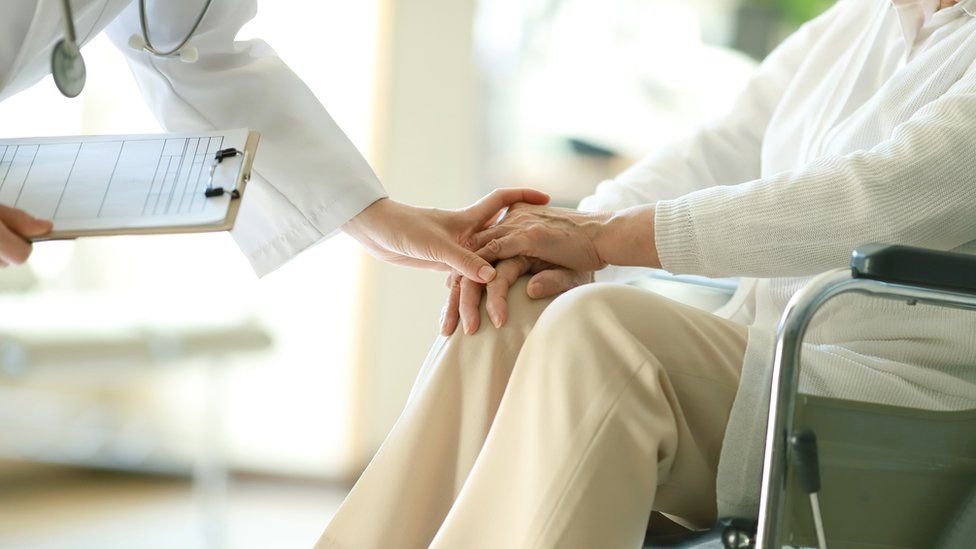Bristol stroke victim 'makes her voice heard' with new therapy
- Published

It can take up to 100 hours of treatment to regain language skills after a stroke
Researchers who offered intensive language therapy to stroke victims discovered they can regain skills even years later.
Hanari, 42, lives in Bristol and had a stroke in 2018.
Her husband Takura said he noticed an "immediate improvement" after Hanari took part in the programme.
"She was making her voice heard and we learned how to help her," he told BBC Radio Somerset.
He added that there had been a "big difference" between Hanari before and after her stroke.
"She went from someone who was very talkative and bubbly to someone dealing with language issues," Takura said.
'Devastating'
The Queen Square Intensive Comprehensive Aphasia Programme was funded by the National Brain Appeal charity.
John Bentley, the lead speech and language therapist for the programme, worked closely with Hanari.
He said it can take up to 100 hours of treatment to regain language skills after a stroke.
The NHS only offers 12 hours of speech therapy on average to stroke victims.
"We take communication for granted, but after a stroke, it can massively affect our relationships," Mr Bentley said.
"It can leave us unable to be the same person. It is quite devastating."
Takura added that thanks to the programme, Hanari can now go to the shop and pay for her food without being nervous.
"This programme made a big difference to how we communicate around the house," he said.
Follow BBC Bristol on Facebook, external, X, external and Instagram, external. Send your story ideas to us on email, external or via WhatsApp on 0800 313 4630, external.
- Published29 March 2023
- Published29 October 2023
- Published30 September 2022